Bart & Fleming: Is Chris Rock The Right Host For The Oscars?

Peter Bart and Mike Fleming Jr. worked together for two decades at Daily Variety. In this occasional column, two old friends get together and grind their axes, mostly on the movie business.
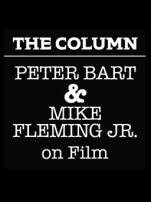
FLEMING
: So we’ve got Chris Rock hosting the Oscars, returning after one so-so stint that seems so long ago, I wouldn’t be surprised if you thought he was a first-timer. What do you think?
BART: The last time I encountered Chris Rock, he looked uncomfortable. We were at one of those Oscar nominee events in 2014 and his film, Top Five, had just come out and clearly was not going to win either in awards or at the box office. It all reminded me of the last time Chris hosted an Oscar show 11 years ago when, once again, he looked a bit uncomfortable. I like Chris and his work, but the bottom line is that it’s hard to look comfortable at an Oscar show because the show is usually uncomfortable with itself. Its ratings have plunged to 37.3 million from 43.7 million the year before. The Oscars show originally was a Hollywood show about Hollywood movies, but a very small percentage of the Oscar viewers actually paid to see the last two winners, Birdman and 12 Years a Slave. Remember that moment on Chris Rock’s 2005 Oscar show when he introduced Jude Law by asking, “Who is this guy?” He has a right to ask, “What is this show?” The Golden Globes has redesigned itself to be a sharp and entertaining TV special that happens to be about movie stars. The Oscars seem adrift as to theme and purpose. If I were its host, I’d feel uncomfortable, too.
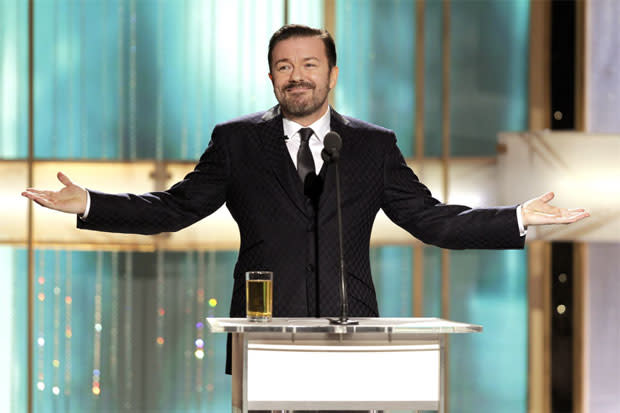
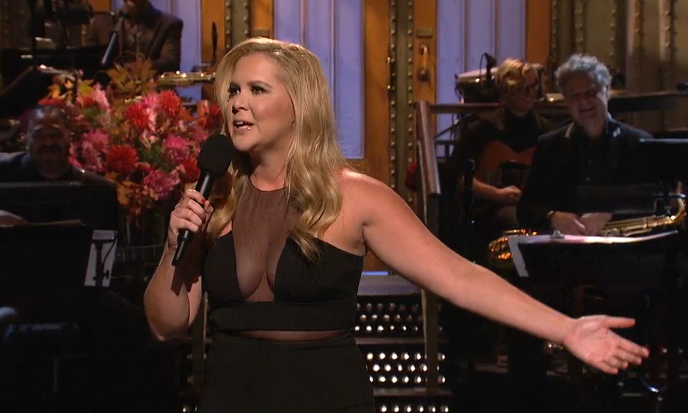
FLEMING
: I agree that the Globes are now the hip alternative because Ricky Gervais made us notice (and cringe) as he eviscerated the nominees and made us feel it wasn’t going to be the usual dull routine, and then Tina Fey and Amy Poehler crushed it. They are gone, and I hope the Hollywood Foreign Press Association is lobbying the incredibly talented Amy Schumer to take the post. I always prefer a host that can deliver a sharp, funny monologue, especially at the Oscars. That show’s structure, which the Academy will never change, is an albatross to the viewing audience and guarantees tedium. You can’t escape acceptance speeches from below the line people you might never have heard of, thanking people you most certainly never heard of. It’s a challenge to stay awake until the last hour when the big category awards are doled out, and show tunes don’t help me get through that.
Rock is better suited for this job than he was when he first hosted. He has directed several films, with Top Five making you feel he is creating his own style as a writer/director/star making personal films the way that Albert Brooks and Woody Allen did. He’s part of the club now, with fewer rough edges, but the sharp observational skills that make him the preeminent stand-up comedian, a baton he took long ago from Eddie Murphy. With all the preoccupation on opportunities for women and people of color, I am interested to see what subjects he will cover, though I have never defined Rock by the color of his skin; I just love how he sees the world and pop culture in all its absurdity. I prefer this to the song and dance-heavy last Oscarcast that seemed more appropriate for the Tony Awards, and I hope producers Reggie Hudlin and David Hill surround Rock with other funny people to lighten up the tone and give the laborious telecast an occasional B-12 shot.
BART: This is especially relevant this year because both you and I sense that the audience out there is buzzing, not about the new movies, but about the TV shows they’re watching (or binging on). All the “serious” new films like Truth or Spotlight or Steve Jobs must compete against a vast landscape of well written and well directed offerings on cable or Netflix or wherever. So it’s all the more urgent that the award shows move the conversation back to movies – or at least try to.
FLEMING:
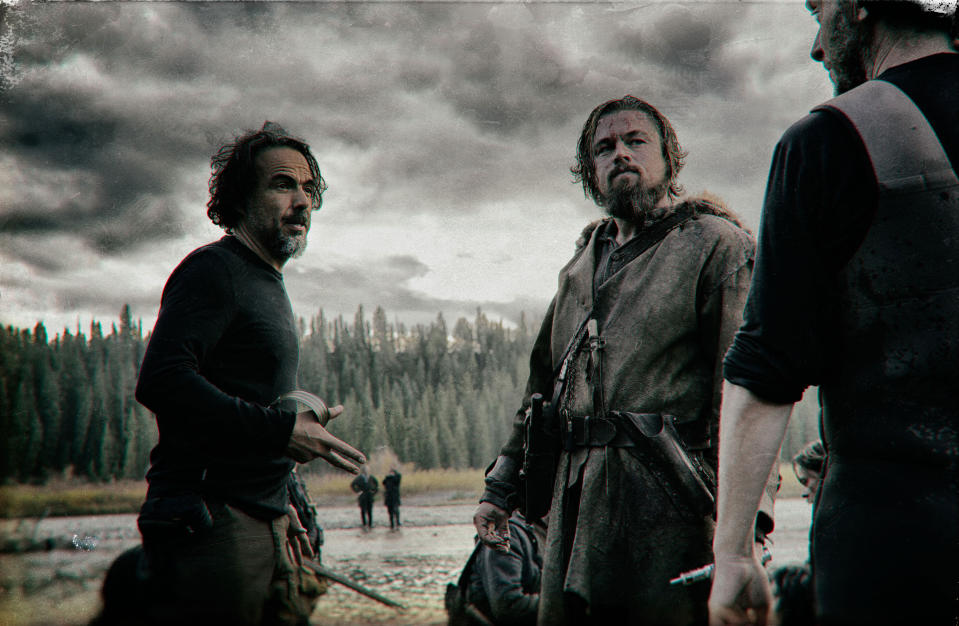
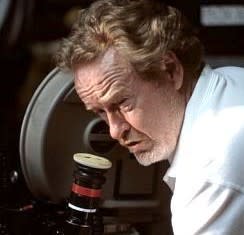
Unlike last Oscars when all the nominees except American Sniper were movies most hadn’t seen, this could be a good time for populist fare, a chance to turn around that ratings drop. By the time the Oscars roll around, we will have seen Hollywood turn in an all-time record box office year, once the 007 film Spectre and the revived Star Wars turn in their billion dollar global performances. Neither will likely factor much into the Oscar race, but there might be big star names in the mix. After a long trail of dazzling performances, will this be the year that Leonardo DiCaprio finally gets an Oscar for working harder and enduring more hardship than ever before in Alejandro Gonzalez Inarritu’s The Revenant? And while Inarritu, David O Russell, Danny Boyle, Quentin Tarantino and Robert Zemeckis and Steven Spielberg might have something to say about it, might this be the year that the Academy finally bestows the Best Director Oscar to Ridley Scott? He has never won it, but The Martian is on course to become the biggest grossing film of his career, at $335 million global and counting. Rock is a terrific choice to guide us through all this.
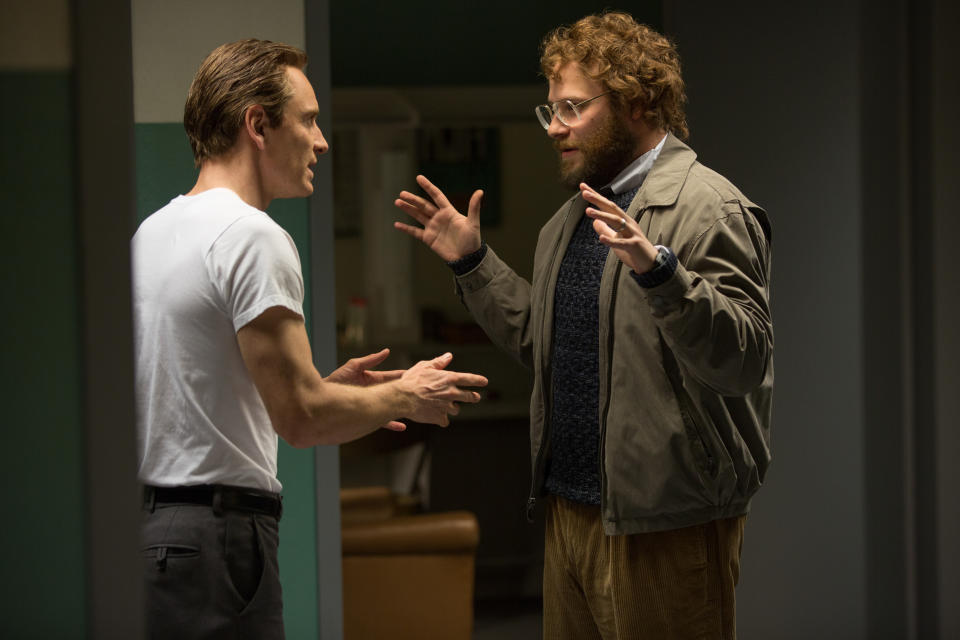
BART
: Next topic. The self-styled fact checkers are coming out of the woodwork as usual at this time of year, challenging the validity of those new films that ostensibly are based on reality. According to these critics, the CBS network’s retreat as depicted in Truth was mischaracterized, Black Mass’ take on Whitey Bulger was out of focus, the ordeal of the blacklisted actors and writers was understated in Trumbo, etc. And then there’s Steve Jobs. “It’s posthumous character assassination,” said one former Apple executive. “Mere opportunism,” said Tim Cook, the current Apple CEO.
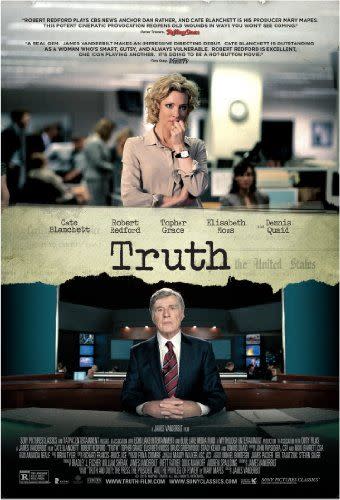
FLEMING
: The fact-checking has been taken to extremes, as you could say that Truth is a movie about fact-checking, and that movie is now being pulled apart by naysayers at CBS News (the network that also didn’t love The Insider). The downside of coming out so early in awards season is there is more time for these movies to be gnawed on and marginalized by cynics, and you wonder where Steve Jobs will be by the time Academy members vote. What is rare about that film is that it has Slumdog Millionaire’s Danny Boyle and a star making turn by Michael Fassbender and a great performance by Kate Winslet. But all the attention so far has gone to Aaron Sorkin, its screenwriter. When was the last time that happened? Network? Sorkin won an Oscar for The Social Network; will he do it again for another web-centric film hammered over accuracy?
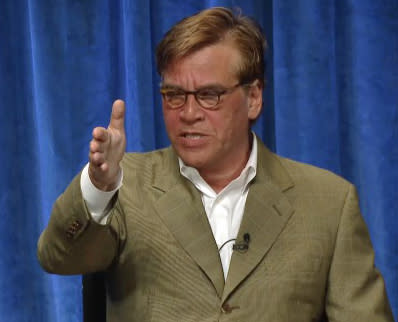
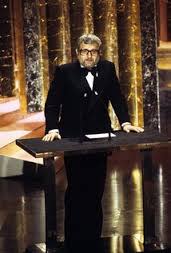
BART
: Though Steve Jobs, the movie, may have blemished memories of the Apple King, it has further burnished the career of Sorkin, who wrote it. Not since the era of Paddy Chayefsky, who died in 1981, has any writer been so well remunerated or wielded so much power over his material. Chayefsky won three solo writing Oscars; will Sorkin get there? Is he as good a writer? Chayefsky, too, often wrote dialectic rather than dialogue – witness the great pontifications in Network and Hospital. But he also could write warmly empathetic characters, as in Marty and Americanization of Emily. Still, Sorkin has shown a brilliant talent for writing rambunctious characters who are of the moment – witness Newsroom or Social Network. Steve Jobs is a chilly movie about a terrible person. Chayefsky might have made him more accessible. Sorkin probably got him right.
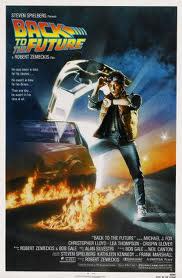
FLEMING
: Next topic. I really enjoyed writing a story on Back to the Future Day where Frank Price described how he got the Robert Zemeckis-Bob Gale script out of Columbia, when that studio head Guy McElwaine desperately needed a waiver on the Billy Wilder movie Double Indemnity in order to make the similarly plotted Big Trouble. Latter lost its director a week into production and flopped while Back to the Future launched a billion dollar franchise. I love these stories because they are important reminders of the challenge of the creative process, helping you realize how hard these decisions are to make, and how even a franchise like Star Wars could have once been a project nobody wanted. Since I am always peppering you for stories about your executive days, my question for you: was there one that you passed on that caused you great regret, or which you watched others turned down because they were obstinate and headstrong? And what about the notion that rare is the movie classic that traveled a smooth road?
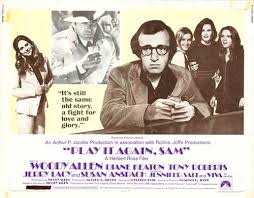
BART
: The process of ‘trading’ projects as Frank Price described happened more frequently in that period when studios were smaller and the executive teams friendlier. I once Engineered a trade between Fox and Paramount where we acquired Play It Again Sam (with Woody Allen) in return for the script for an action picture. Fox wanted action, we wanted Woody. I got lucky; Woody’s picture was a hit. I don’t remember the other project, but back then we didn’t keep a record of one-upsmanship and there was less scrutiny like now. We were releasing 30 or 40 movies a year and you needed a certain amount of comedies and dramas to balance out the slate. So you traded. And you, Mike, mentioned in your Billy Friedkin interview how The Directors Company (a Paramount unit) turned down Star Wars despite the fact that Francis Coppola, a partner in the company, was a pal of Lucas. I had just lobbied for that company to make Paper Moon, so I didn’t mount a big push behind Star Wars. Friedkin and Bogdanovich didn’t push either. That was a ‘whoops’!

Next topic. There are signs of growing panic on the Hollywood political landscape as activists view the probability of a Hillary-Trump race. Hillary has never built the loyal base among celebrities as that captured by her husband. And the confusion in the town’s conservative ranks is palpable. Jerry Perenchio may lavish millions on Carly Fiorina but no one else seems interested. And no one can figure out whether Gary Busey really admires Trump or simply wants to play him in a biopic. The Republic distress signals are particularly strong in the House of Rupert. Murdoch’s Mouthpiece – the editorial pages of the Wall St Journal – states “we share most of the Freedom Caucus’ policy goals.” Yet its editorials and editorial columnists continue to attack the tactics of the caucus in replacing John Boehner and declare that Trump’s candidacy is an accident ready to happen. Of course, Rupert and his Fox News Guru, Roger Ailes, created the Tea Party and now seem stuck with it. The many stars and star filmmakers working at Murdoch’s film and TV factories are looking on with bewilderment as Rupert tries to figure things out.
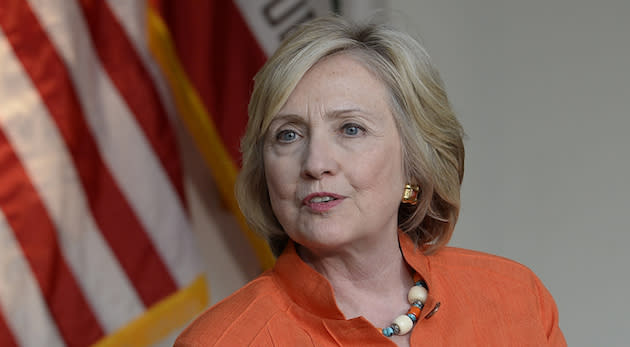
FLEMING
: I am glad to see Hillary Clinton finally beginning to emerge from slumber and her Benghazi emails and is starting to assert herself. Her barbs against Bernie Sanders on meaningful gun control was music to my ears, as was Trump’s assertion that he is against political campaigns being so heavily financed by special interest groups that it is impossible to believe politicians weigh the wants of voters more heavily than they do these groups bankrolling campaigns and preserving tax breaks for the 1%, all while ignoring the obvious need for creation of an infrastructure that keeps guns out of the hands of troubled people who are ticking time bombs.
BART: Yet Hillary’s camp has raised $5 million in donations from studio honchos or stars vs $134,000 for Bernie Sanders.
FLEMING: After that brilliant impersonation of Sanders that Larry David did on Saturday Night Live, Sanders should prevail upon him to hold a fundraiser and they could do bits together. That would raise some dough. I always thought Trump was a bit of a sexist blowhard, but I guess we have to start taking him seriously. After all, he has managed to create traction on the national landscape that eluded other tri-state area pols like Rudy Guiliani and Chris Christie. His bluntness challenges the empty political bluster you usually see on the campaign trail. Clearly we can’t dismiss him. A final footnote from me after we lambasted Viacom last week for not taking risks and you made brief mention of how the WSJ hammered Paramount for leaving money on the table with Paranormal Activity: Ghost Dimension. That is because of a risky plan to move the film to VOD/DVD right after it leaves theaters, prompting several major exhibitor chains to boycott while others like AMC signed on. I have always applauded risk taking in the name of progress and feel theater chains are too obstinate in protecting their turf by delaying ancillary revenue runs to the point when the public has long forgotten about a movie they didn’t see, and pirates have disseminated illegal copies that young people watch with the attitude they are Sticking It To The Man, and not feeling the conscience tug that should come with shameful copyright theft. Paramount and micro-budget genre producer Jason Blum hatched a formula that will give theater chains a piece of Paranormal ancillary revenue.

A look at this weekend’s numbers shows that while the fright film’s gross has suffered by smaller theater penetration, AMC (the chain that took a risk with Paramount here) decisively outperformed the other circuits Friday night, and 54% of its box office came from Paranormal. Other theater chains that signed on also benefited, and the trend should continue through Halloween. TV, which controls the production and distribution of its product, has excelled in making product accessible to audiences and their system hasn’t collapsed. Because movie makers and exhibition are on opposite sides, movie windowing remains in the Stone Age. You can’t have progress without sacrifice — and Paramount is going to get beaten up in the box office reports — but I applaud Paramount and Blum for trying this. I hope they make up the money with a fast VOD release. It is clear that shortening the time between theatrical and ancillary release, not just on micro-budget genre films, will come only if theater chains participate in the upside. Hopefully, once those obstinate chains realize their brick and mortar businesses won’t be imperiled by this innovative move which will actually put money in their pockets, they might give progress a chance instead of simply dismissing it. And Bravo for AMC and the other chains for trying something a little bold.
Related stories
Chris Rock To Host The Oscars, Academy Confirms
Oscars: Chris Rock In Talks To Host
Get more from Deadline.com: Follow us on Twitter, Facebook, Newsletter

